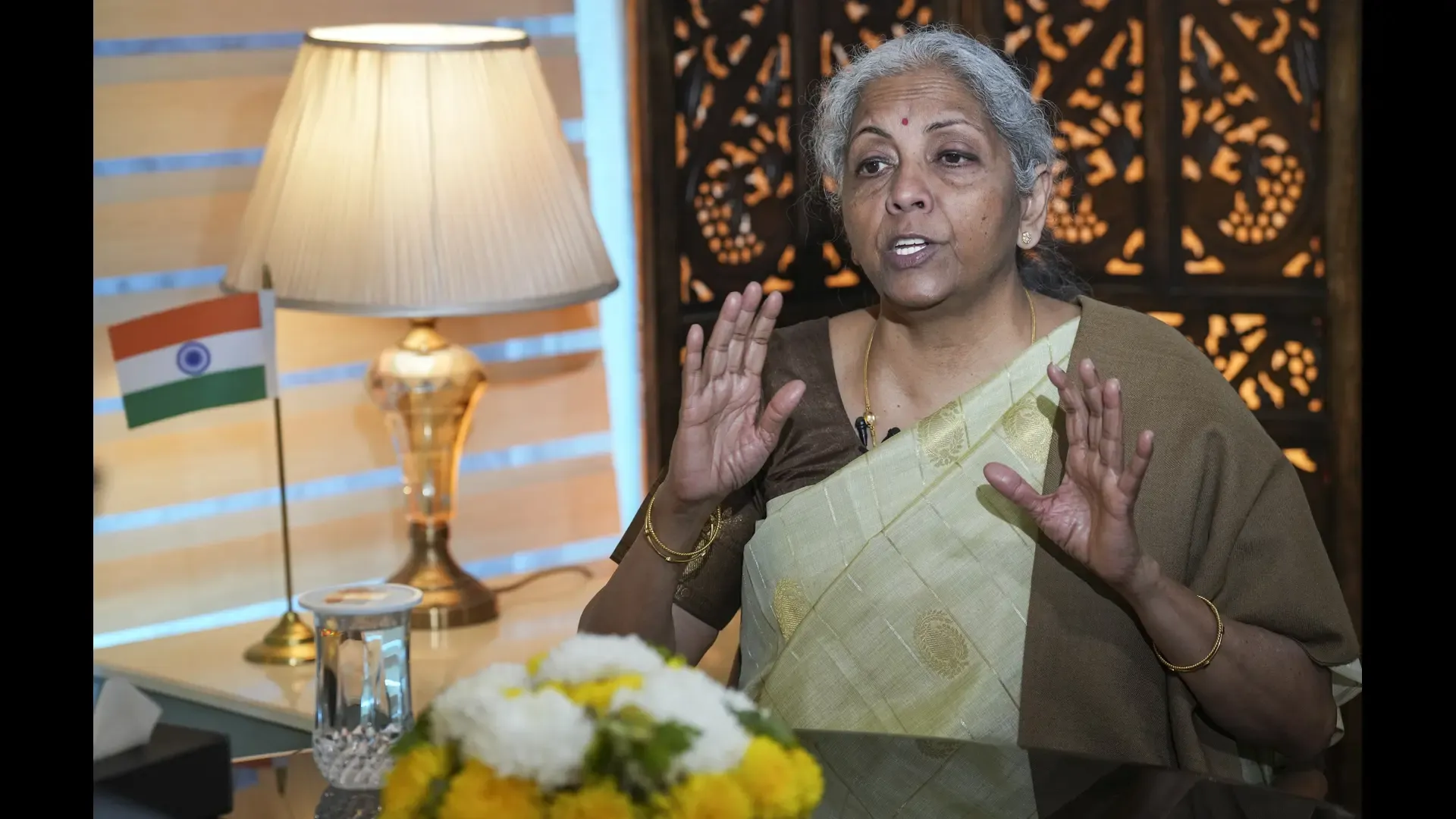Business News
PM Modi was clear on tax cuts, but bureaucrats needed convincing: Sitharaman on Budget 2025
.png)
3 min read | Updated on February 02, 2025, 14:34 IST
SUMMARY
Finance Minister Nirmala Sitharaman revealed that Prime Minister Narendra Modi was fully in favour of tax relief measures announced in Union Budget 2025-26, but bureaucratic concerns over revenue generation delayed the decision.

Union Finance Minister Nirmala Sitharaman during an interview with PTI Editor-in-Chief Vijay Joshi, in New Delhi, Sunday, Feb. 2, 2025. (PTI)
Prime Minister Narendra Modi was fully in favour of providing tax relief to citizens, but it took time to convince bureaucrats, Union Finance Minister Nirmala Sitharaman said. In an interview with news agency PTI, Sitharaman said that while the proposal to cut taxes had been under discussion for some time, the process required extensive consultations.
"Wherever I travelled, the voice I heard was that of honest taxpayers asking the government to consider their concerns. I discussed this with the honourable PM, who assigned me the task to explore possible solutions," she said.
When asked if Prime Minister Modi was fully on board with the tax cut decision, Sitharaman said it was the finance ministry, not the Prime Minister who needed convincing.
"I think the question should be how much it took to convince the ministry and the boards. The PM was very clear that he wanted to do something. It is for ministry to have had the comfort level and then go with the proposal," the finance minister said, adding that bureaucrats "have to be sure of revenue generation."
On the narrow base of taxpayers in India, Sitharaman acknowledged the uphill task in front the government to make people understand the role of paying tax and bring them onboard.
"That (reducing taxes) is the first step towards the new tax bill I would think, because that is what I emphasized earlier that we didn't wait for the new tax bill to carry this rate reduction. This was something we meant anyway, so we brought it on," she said.
When asked about the impact of the tax rebate on GDP growth, Sitharaman refrained from making direct predictions but asserted that the tax proposal will make people have more money in their hands.
"When people have money in their hands, they make their judgement about whether they want to spend it entirely or spend some out of it, and also make sure that they save something else, some amount from it."
Sitharaman said a 3% depreciation in the rupee against the US dollar in past few months is a matter of concern as it makes imports costlier, but she rejected criticism that the local currency has seen all-round weakness.
"I am concerned but I will not accept the criticism that 'Oh Rupee is weakening!' Our macroeconomic fundamentals are strong. Rupee wouldn't be stable against all the currencies if the fundamentals were weak," she said.
The Indian rupee has been under pressure in the last few months but it continues to be the least volatile currency against the US dollar among its Asian and global peers. The reasons for the rupee hitting record lows almost on a daily basis against the US dollar range from widening trade deficit to a surge in the dollar index after the US Federal Reserve hinted at fewer rate cuts in 2025.
Related News
By signing up you agree to Upstox’s Terms & Conditions
About The Author
Next Story


